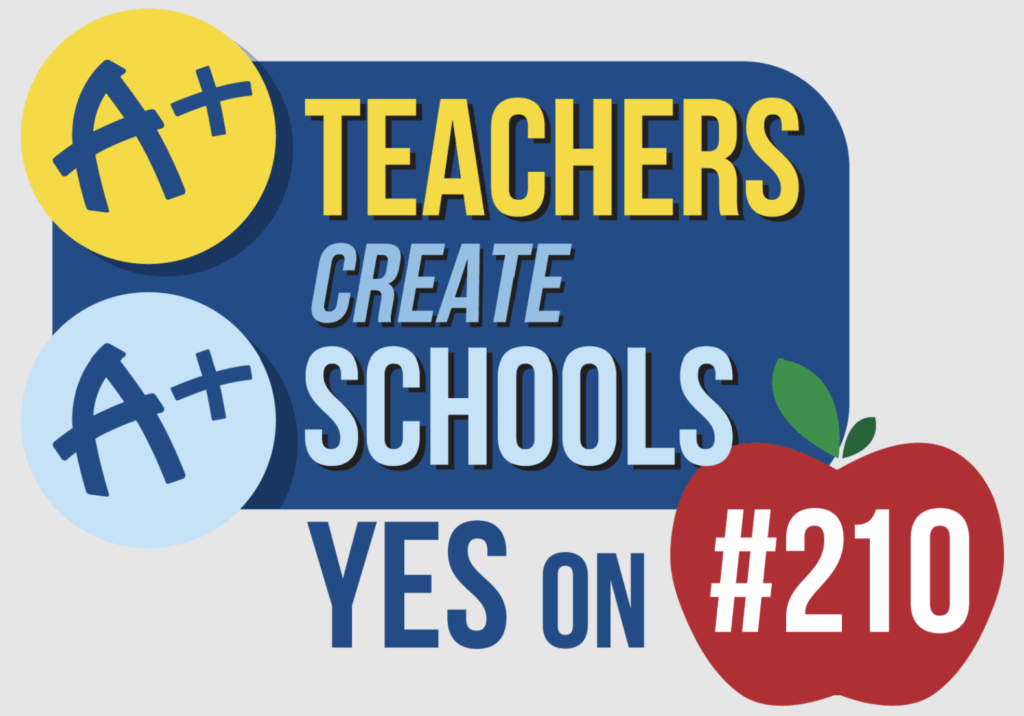We the Students Recommend Yes on 210
Melissa Wolf is one of the longest tenured teachers at John A. Ferguson Sr High, with the 2022-2023 school year marking her 17th. Many of her colleagues say that she has been able to excel in her job for that amount of time because of the uncanny chemistry she has with her students that adds an overall personal touch to her class. By the time of the Marjory Stoneman Douglas shooting, she had already picked up on many signs that led to eventual reforms being passed in schools.
“I agreed that changes did need to be made in terms of the safety of schools. I did feel that there was a lack of funds towards security. The reality was that we were having a lot more issues with mental health as well,” Wolf said.
Upcoming general elections during November 2022 will see Referendum 210, which was set in place by taxpayers in Miami-Dade to comply with the Marjory Stonemen Douglas bill, be decided in reelection for the first time since its passing in 2018.
The original bill was passed as an immediate response to the catastrophic shooting that shook the world outside of the small Broward community of Parkland, Florida. The subsequent referendum conceived in Miami-Dade to fund it, distributed 12% percent of funds to guarantee worried parents that a police officer would be assigned to protect every individual public school in the county – the other 88% went to increasing teacher pay.
This year the median cost for homeowners is estimated to be 20 dollars a month – an increase from its 12-dollar cost at the time of its initial conception because of the inclusion of funding for charter schools.
“The referendum is really just a way in which the community can continue to support and invest in the lives of children as well as the further compensation that goes towards retaining and recruiting highly qualified teachers,” Principal Wendy Barnett stated.
Ferguson’s designated police officer, Joseph Cooper, believes that the bill was a significant step in the right direction for the protection of students as Florida continues to set precedents for safety in schools.
“If we invest into any type of security, it should be in our children and the future of the community. We cannot allow something like Parkland to happen again and with that referendum, it guarantees students get that protection,” Cooper said.
When highlighting the intricacies of the bill, one of the key nuances of it he pointed out was the distinction between the role of a police officer in Miami-Dade schools in comparison to previously implemented armed guards – a security measure that other counties such as Broward still have in place.
“You cannot beat the service of a police officer. Police officers have handcuffs and the power to arrest while armed guards are there just to neutralize an active shooter. They are not there for other crimes and other issues that are impacting our children and making it a safe environment. Guardians do not really do that. Police officers do that. They are here like me making sure that children are not only safe from an active shooter but other issues like bullying and threats,” Cooper shared.
Before 2018, Cooper was also in charge of many middle schools in the West Kendall area along with Ferguson. He felt that after transitioning solely to Ferguson, his presence streamlined the many necessities of children into the building – especially regarding mental health and his role in the school with it.
“What we are seeing now in society is that mental health is at an all-time low. It is a serious thing we need to come together as a community and recognize. Many kids due to [COVID-19] and the long-distance learning are struggling with adapting back to being in-person. If something happens here in the school relating to that, I also play a part in that,” he continued. “We can directly Baker Act and evaluate children. I am forced to care because I am here every single day and unlike a police officer from the street, I will have to see that kid that goes into my office with bad thoughts the next day.”
Even with the benefits that the presence of a mandated officer introduced to schools, he still thinks that it is not enough.
“The law that was passed states that there needs to be a police officer from ‘bell to bell service.’ I can legally leave by 2:20 which is unfair to those who stay after school. I think that if there are students in the building, there needs to be an officer. At night, there is credit recovery, and the football team practices every single day. You cannot tell me that those kids on campus from 7:20 to 2:20 deserve more protection over those that stay until 6:30,” he said.
Regarding the aspects of the referendum, Principal Barnett is of the opinion that it has and will continue to allow the school to grow with the schools and become a more well-rounded environment as a result.
“Where we need to continue growing, expanding, and airing our focus is really making sure that the needs of the kids are being met,” she said. “We need to continue checking in with the kids mentally and emotionally, proper decision-making is being maintained through the support systems present in the guidance of all professionals in the building. A police officer automatically demonstrates authority and makes everyone feel safer. However, I also think safety also comes in the forms of a teacher and a counselor offering different kinds of support. The safety of children in our building is all our responsibilities as educators.”
More than anything though, the immense impact that the guidance of a teacher has on a student will always resonate with Principal Barnett, a former educator herself. She has always supported rewarding her instructors for the various responsibilities they have while in the classroom – including them being accommodated with increases in salary.
“I am always going to be of the mindset that teachers deserve more. I know that they not only provide academic support as they experts in what they are teaching, but in addition they are providing so much more that is being asked of them in regards of the well-being of students, connecting and aligning services. Because of this, I will always be an advocate for them to get better pay,” she said.
Some argue that the Florida government in recent years has done their part in increasing the pay of teachers. That is partially true, but what often goes unmentioned is the fact that what was raised was their entry level salary as a means of handling the troubling trend of shortages in the profession statewide. The paychecks of those already in the craft were left completely untouched. While the measures provided a temporary solution for the lack of teachers, losses are being seen on the other side – as lifelong educators no longer see the craft as a viable source of income.
“Being a teacher myself, and the fact that I have taught for almost two decades and only earn a little bit more than a starting teacher would earn, I feel as if there is a huge discrepancy in that. I know that a lot of that just had to do with getting teachers into the workforce, but we are having issues with retention,” Wolf expressed. “People cannot survive on a teacher’s salary, and it is sometimes hard to make ends meet, especially with the cost of living in Miami. I feel that a lot of it has to do with the fact that people do not value the career as a profession, as something that is respectable to other careers.”
The constant feeling of resentment, or of almost being untrusted with doing what their job should entail – educating the future of the nation, has arisen more in teachers. These sentiments are not just seen when regarding their pay, but with the recent passing of certain laws in Florida that has given parents and the government more control of what material can be taught to their children.
The first one to come to mind is the Parental Rights in Education Bill, which not only has infringed on the rights of transgender youth athletes and gay representation in schools but has also seemed like an attempt to recontextualize or even redefine what it means to be a teacher.
“I definitely believe that many people who are outsiders want to make my job a script to appeal to their own personal narrative and ideals that they want their kids to maintain. While I value that we should not want to indoctrinate a kid to believe one way or another, I think that that exposure is important because it’s part of the reality we face every single day – just because we do not talk about it does not that that it does not exist,” she continued.
Wolf has always sided with the notion that teachers should be held to a higher social regard – citing how meticulously she and her coworkers outline what they will teach, along with how one must truly love the career to pursue it.
“This was not anything new – parents and politicians have always felt like they need to control what I teach in the classroom which to me is disrespectful because I do not tell them what they should do with their jobs. It is also an understanding that I have gone through trainings, and I established my curriculum in order to have their best interest at heart. I understand that not everybody has that, but the majority of teachers that go into the profession being disrespected, underpaid – we go in it because we are passionate about impacting our youth overall,” she stated.
It is this underlying stigma towards teachers, that has increasingly continued to butt its head with the wills of the education system, that has led to some fears that Referendum 210 will garner less support on the ballots this year.
Nevertheless, 24 year history and philosophy teacher and another avid supporter of the referendum passing, Roger Coriat, believes that if any factor will shift the outlook of its perception come Election Day over any political views and affiliations, it will be the reality of the current economical state of the nation.
“Questions about the referendum are tied more to inflation right now. People are thinking 20 dollars a month may not sound like a lot but that is also 20 dollars less that I have for groceries or putting gas in my car to get to my own job. It is a reality that prices are ridiculous right now. They have not publicly announced it, but we have all signs of a recession right now,” he said.
This holds true in many households across the county, especially those that populate the middle and lower tax brackets who must prioritize spending and saving their money wisely. Thus, reinvesting in a bill whose cost has increased due to the previously mentioned additional funding for charter schools may present a challenge. Regardless, many are still willing to invest in the future of their children.
Mayra Caceres, a middle-class homeowner in West Kendall and mother of three young children with two already enrolled in public schools, fully expects to vote for the renewal of the referendum because it makes her feel more confident in their education.
“I do support it. I have children in elementary school, so I do feel better when I drop them off and see that there is one posted in front of the school. Us being in a recession does not change my stance on it. I think all the kids should be equally protected not just mine because they go to public school,” she said. “The way that taxes are levied is everyone needs to pay even if you do not have kids and whether your kid goes to public schools or not. It is only fair that if your kid does not go to public school and they do charter school, that they are protected as well so I am not mad that it went up either.”
The consensus of Referendum 210 along with the Marjory Stoneman Douglas Bill was that it enacted necessary measures to continue nuancing the public education system at a crucial time where both parents and children were hesitant about their return to school.
Since then, it has been presented with many other issues that have caused a feeling of uncertainty in the environment, mainly the pandemic and surging issues of adolescent mental health.
However, I believe that as a Senior graduating high school myself this year that it is indisputable that the intentions of the bill are essential to guaranteeing a better future for not only students and teachers, but for entire communities, like Parkland or Uvalde, to not be shattered at the hands of premeditated tragedies that could have been prevented with better attention to the wellbeing of children as well as proper implementation of security.
It is not the definitive solution, and the state of Florida still has progress to make in this sector of public education, but the 210 Referendum has carried a legacy of being a temporary remedy for safety in schools in the simple fact that no shooting has occurred since then.
The referendum cannot be attributed to having any impact in aiding with the retention of teachers so far, as shortage rates have remained high countywide. With that being said, in due time and with steady compensation to a profession that deserves so much more, the implications of 210, along with future legislation, has the potential to close that gap more.
It is not meant to immediately fix all the issues prevalent in public schools because that is simply impossible. Its original and current purpose has been to establish the proper initiatives in place to eventually facilitate those changes. Everyone should mark it on their ballots on election day to ensure that more landmark steps are being taken to improve the education of those who will one day oversee the community.
You may be interested
Farewell From the 2024-25 Editor-in-Chief
Kat Torres - May 29, 2025Finding the words to express how I truly feel has been more difficult than I expected. How do you begin to say goodbye…

The Heart and Soul of Our School
Daniella Prieto - May 29, 2025At John A. Ferguson, some of the most meaningful work is happening quietly, all through structure, patience, and consistency. Inside the ASD (Autism…

Chick-fil-A vs. Raising Cane’s: A Clash of Chicken Titans
Kristen Almendral - May 27, 2025There have been debates recently over two fast food chains: Chick-fil-A and Raising Cane’s. Both chains are favorites among many. These fast-food chains…
Most from this category

Exciting Summer Getaway Destinations
Tehreem Chaudhry - May 22, 2025
The Chilly Challenge of the Ferguson Classroom
Leydi Morales - May 20, 2025
















